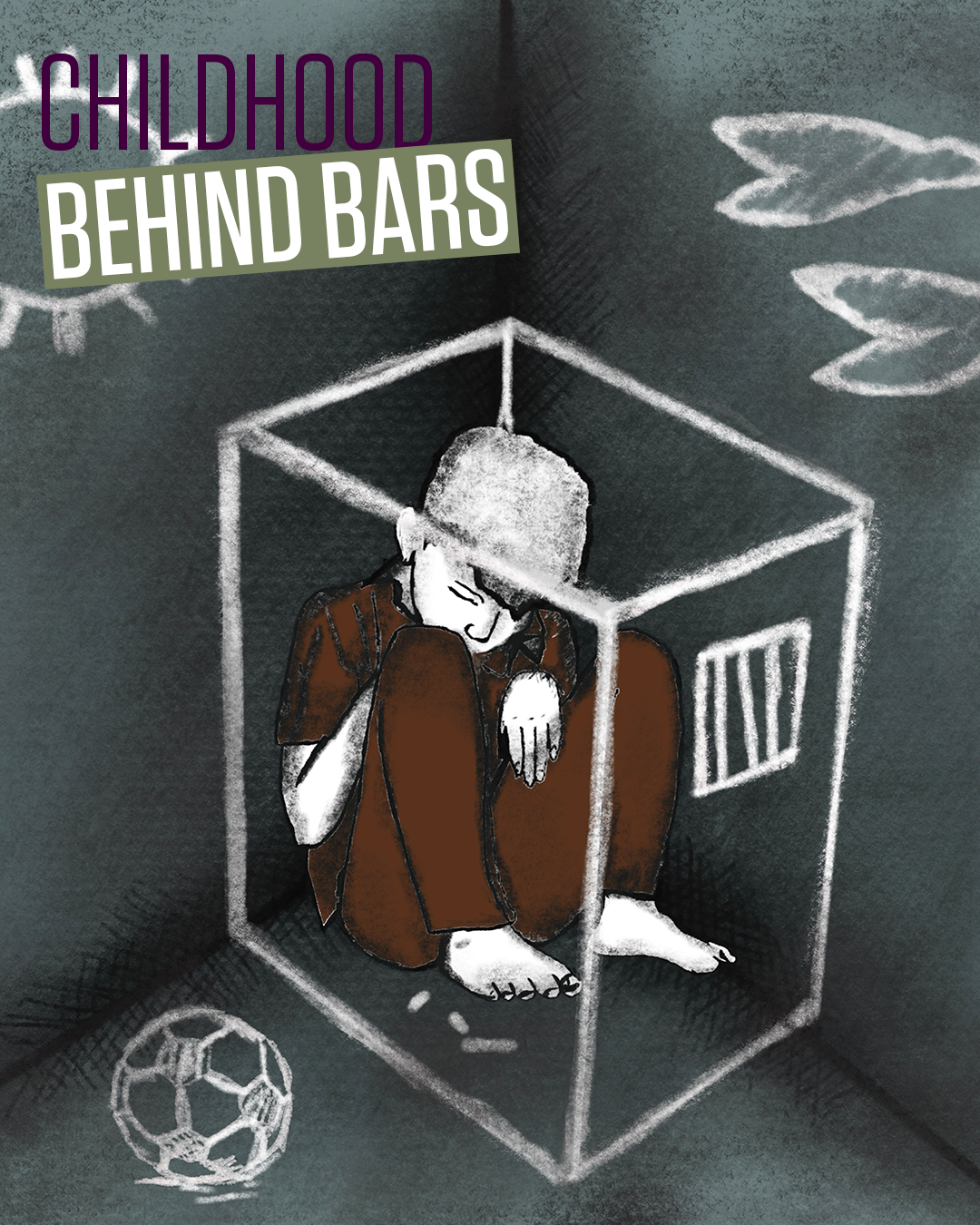Childhood Behind Bars: The 16 year old who lost 18 months of his childhood
BILAL’S STORY
Artwork credit: Shatha Safi
Before 16-year-old Bilal was arrested, his life was simple but fulfilling. He worked at a small pizza shop near to his house – a job he loved and that gave him a sense of purpose and belonging.
The night he was arrested, he’d gone to the local shop. On his way there, he was ambushed by a group of undercover Israeli soldiers. They covered his head, handcuffed him and began beating him on the spot. He was then thrown into a military vehicle, where the beating continued all the way to the interrogation centre in Israel.
Bilal didn’t know why he had been arrested or what the soldiers intended to do with him. All he wanted was to go home.
Though he had been charged with throwing stones, he only became aware of the charges when he was brought before the court. After 14 days in detention – days marked by harsh interrogations, little food, minimal sleep and physical abuse – he was sentenced to house arrest, which would last for a year and a half.
A traumatic house arrest
Within the small confines of his home, Bilal felt completely stripped of his freedom. His relationship with his parents became strained as they became more like guards, preventing him from leaving the house as requested by the court. Not being able to go out meant he lost the desire to even move, preferring to stay in bed all the time, which eventually led to a neck disc problem. Even though his family was physically present and tried to support him, he felt detached and numb. “My spirit began to break,” he said. “My only overwhelming thought was: ‘I want to get out of this prison.’”
Even after the traumatic house arrest ended, Bilal continued to live with anxiety, fear and tension. He had lost a year and a half of his childhood, and there were days he felt completely hopeless. He experienced mood swings and found himself unable to focus or make plans.
Bilal’s social relationships also suffered, as he felt angry and disconnected from his family and friends. He stopped spending time with his friends, decided not to return to the job he’d once enjoyed, and even lost his passion for cooking – one of his favourite hobbies before the arrest.
Processing the trauma
The turning point for Bilal came as a result of support from Embrace’s partner. His mother benefited from individual psychosocial counselling sessions, which helped her understand her son’s trauma and how to support him. Bilal also attended psychosocial support sessions, which helped him to identify the sources of his fear, anxiety and stress, and learn how to manage his emotions.
Reconnecting with friends has begun to bring Bilal some relief. Being able to talk to them and feel accepted by them has reminded him that connection is still possible, despite the distance that had grown between them during his house arrest. It has also helped him to regain some of the confidence and energy he’d lost.
Bilal now firmly believes that psychological and social support is essential for any child who goes through an experience like his. Every child deserves to heal – and that healing starts with being seen, heard and supported.
Share this story with your friends:
Join our campaign to stop military detention of Palestinian children
We are calling on the UK government to put pressure on Israel to end military child detention in the West Bank, and also address the root cause of it – the occupation.
Your MP has the power to pressure the government to bring about real change for Palestinian children. Find out more about our campaign and write to your MP today:


